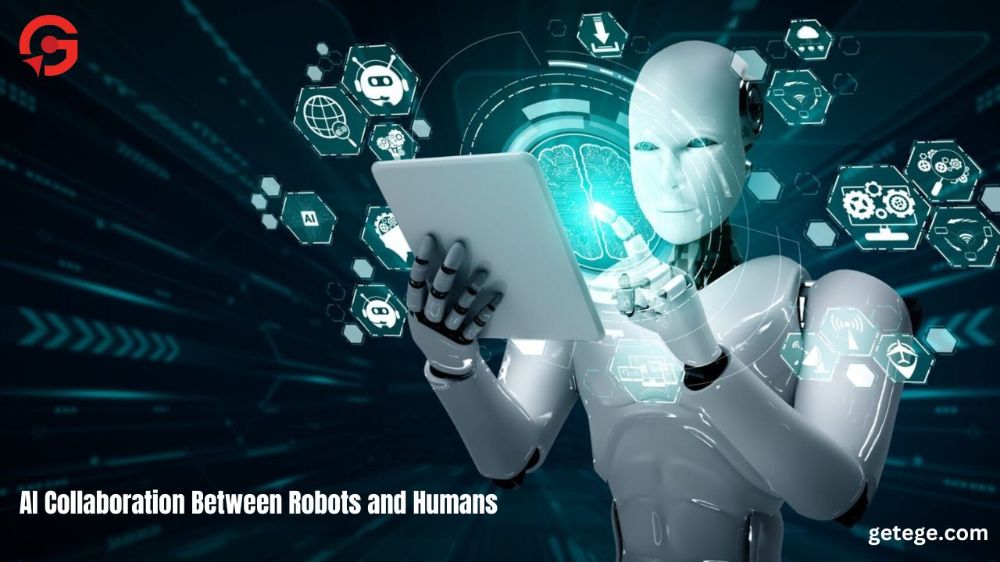The Rise of Artificial Intelligence: A Comprehensive Guide to AI
Artificial Intelligence (AI) has swiftly become one of the most transformative technologies of the modern era. From automating mundane tasks to enabling advanced medical diagnostics, AI has made its mark across nearly every industry. Whether you're aware of it or not, AI is part of your daily life—when you use a virtual assistant like Siri or when Netflix suggests a new movie based on your preferences. In this blog post, we’ll take a deep dive into the world of artificial intelligence: what it is, how it works, its current applications, and what the future holds. By the end, you'll have a clearer understanding of why AI is shaping the future and how it impacts your life.
What is Artificial Intelligence?
It encompasses various fields such as machine learning, natural language processing, robotics, and computer vision.
These tasks include recognizing speech, making decisions, solving problems, and even understanding and translating languages.
There are two main types of AI:
- Narrow AI: This type of AI is designed to perform a specific task, such as facial recognition or internet search queries. Narrow AI is what powers most of today’s AI applications.
- General AI: A more advanced form of AI, General AI aims to replicate human intelligence across a wide range of tasks. While it’s still theoretical, many researchers believe it could be the future of AI development.
How Does Artificial Intelligence Work?
AI systems function by processing vast amounts of data and using algorithms to recognize patterns and make decisions. This process often involves:
- Data Collection: The AI system gathers and organizes data from various sources.
- Data Processing: The AI uses algorithms to analyze the data and identify patterns or trends.
- Decision Making: Based on the analysis, the AI makes predictions or decisions.
- Learning: Through machine learning, the AI system continually improves its performance over time by learning from new data.
Key to the functioning of AI are technologies like machine learning (ML), deep learning, and neural networks, which help AI systems process large datasets and learn autonomously.
Applications of Artificial Intelligence
AI is revolutionizing numerous industries and is becoming increasingly prevalent in everyday life.
1. Healthcare
AI is transforming healthcare by improving diagnostics, streamlining workflows, and even assisting in surgeries. AI models can analyze medical data, detect patterns, and predict potential health issues more accurately than traditional methods. For instance, AI-powered diagnostic tools can identify early signs of diseases like cancer from medical imaging data.
2. Automotive (Self-Driving Cars)
Companies like Tesla and Waymo are developing AI-driven vehicles that can navigate roads, interpret traffic signs, and avoid obstacles, all without human intervention.
3. Finance
AI algorithms can analyze massive datasets in real-time to detect fraudulent transactions, assess risk, and make investment decisions more effectively than human analysts.
4. Retail
Retailers are using AI to personalize the shopping experience for customers. AI-powered recommendation systems, such as those used by Amazon and eBay, analyze browsing history and past purchases to suggest new products that might interest the user.
5. Natural Language Processing (NLP)
This technology powers voice assistants like Google Assistant, Siri, and Alexa, which can comprehend and carry out verbal commands, making human-machine interactions more seamless.
6. Entertainment and Media
These AI systems analyze users' viewing or listening habits and suggest movies, series, or music that align with their tastes.
Advantages of Artificial Intelligence
AI offers numerous advantages across different sectors, including:
- Efficiency: AI automates routine tasks, freeing up human resources to focus on more complex activities.
- Accuracy: AI systems can process vast amounts of data quickly and with high precision, minimizing human error.
- Scalability: AI can easily scale to handle increasing amounts of data, making it invaluable for big data analysis.
- Personalization: AI algorithms can provide tailored experiences to users, whether it's personalized shopping recommendations or custom healthcare plans.
Challenges of Artificial Intelligence
While AI has remarkable potential, it also presents challenges that must be addressed:
- Data Privacy: With AI collecting vast amounts of data, maintaining user privacy and data security is a critical concern.
- Job Displacement: As AI continues to automate tasks, concerns about job displacement in industries like manufacturing, retail, and even white-collar sectors are growing.
FAQs
1. What is the difference between AI and machine learning?
AI is the broader concept of machines performing tasks that require human intelligence, while machine learning is a subset of AI focused on algorithms that enable machines to learn from data and improve over time.
2. How is AI used in everyday life?
AI is used in a variety of everyday applications, including virtual assistants (like Siri and Alexa), recommendation algorithms on streaming platforms, and personalized shopping experiences online.
3. What industries benefit most from AI?
Many industries benefit from AI, including healthcare, finance, automotive, retail, and entertainment. AI improves efficiency, enhances decision-making, and provides personalized services in these sectors.
4. Is AI going to take over jobs?
While AI will automate certain tasks, it’s more likely to complement human work rather than replace it entirely. AI can free up time for employees to focus on more strategic, creative, and complex tasks.
5. What is the future of AI?
The future of AI looks promising, with advancements in general AI, robotics, and natural language understanding. AI will continue to improve in areas like healthcare, autonomous driving, and personalized experiences, reshaping industries as we know them.
Conclusion
Artificial intelligence is no longer a futuristic concept—it's shaping the present and is poised to define the future. With applications ranging from healthcare to entertainment, AI is revolutionizing industries and improving lives. However, challenges such as data privacy, bias, and job displacement need to be managed carefully as AI continues to advance. By understanding the fundamentals of AI, we can better harness its potential for innovation while addressing the ethical concerns that come with it.














